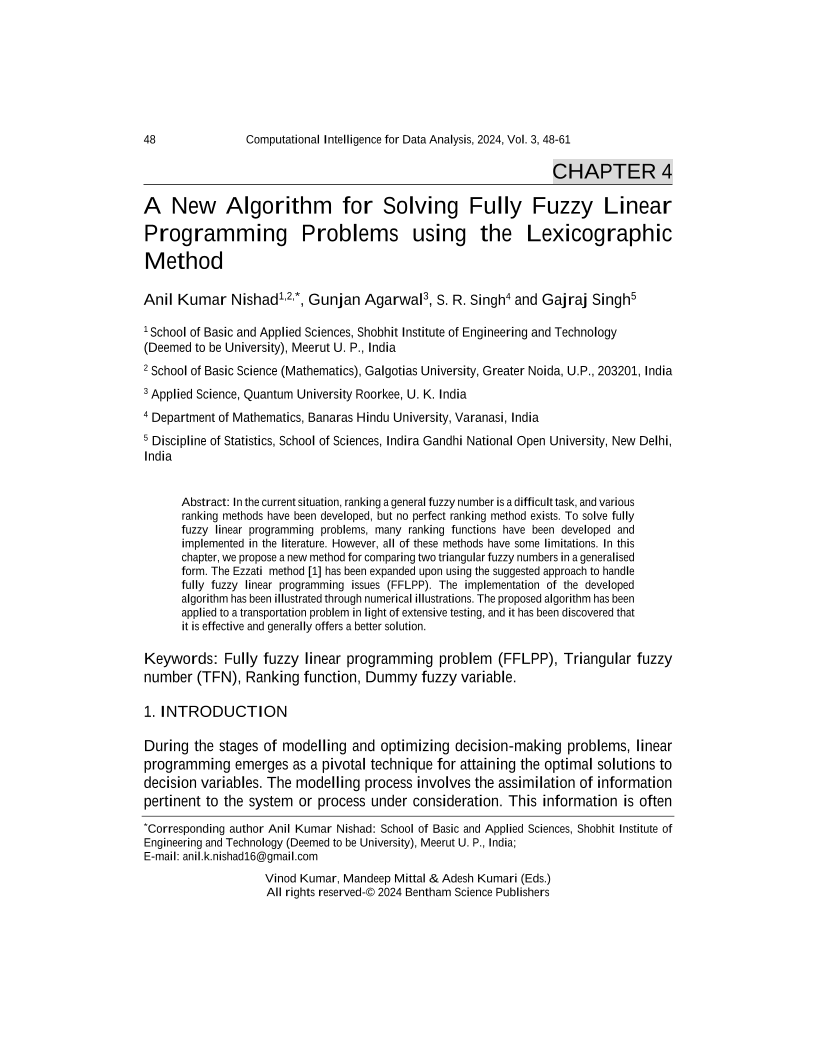A New Algorithm for Solving Fully Fuzzy Linear Programming Problems using the Lexicographic Method

- Authors: Anil Kumar Nishad1, Gunjan Agarwal2, S. R. Singh3, Gajraj Singh4
-
View Affiliations Hide Affiliations1 School of Basic and Applied Sciences, Shobhit Institute of Engineering and Technology (Deemed to be University), Meerut U. P., India 2 School of Basic Science (Mathematics), Galgotias University, Greater Noida, U.P., 203201, India 3 Department of Mathematics, Banaras Hindu University, Varanasi, India 4 Discipline of Statistics, School of Sciences, Indira Gandhi National Open University, New Delhi, India
- Source: Computational Intelligence for Data Analysis , pp 48-61
- Publication Date: May 2024
- Language: English
A New Algorithm for Solving Fully Fuzzy Linear Programming Problems using the Lexicographic Method, Page 1 of 1
< Previous page | Next page > /docserver/preview/fulltext/9789815196320/chapter-4-1.gif
In the current situation, ranking a general fuzzy number is a difficult task, and various ranking methods have been developed, but no perfect ranking method exists. To solve fully fuzzy linear programming problems, many ranking functions have been developed and implemented in the literature. However, all of these methods have some limitations. In this chapter, we propose a new method for comparing two triangular fuzzy numbers in a generalised form. The Ezzati method [1] has been expanded upon using the suggested approach to handle fully fuzzy linear programming issues (FFLPP). The implementation of the developed algorithm has been illustrated through numerical illustrations. The proposed algorithm has been applied to a transportation problem in light of extensive testing, and it has been discovered that it is effective and generally offers a better solution.
-
From This Site
/content/books/9789815196320.chapter-4dcterms_subject,pub_keyword-contentType:Journal -contentType:Figure -contentType:Table -contentType:SupplementaryData105

